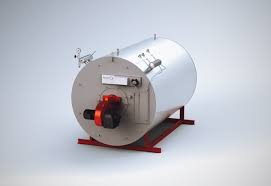
Nov . 10, 2024 14:16 Back to list
Prices for Oil-Fired Hot Water Heaters and Their Value Comparison
Understanding the Prices of Oil-Fired Hot Water Heaters An In-Depth Look
When it comes to heating water for residential or commercial purposes, oil-fired hot water heaters have long been a popular choice. Known for their efficiency, reliability, and ability to produce large volumes of hot water, these systems are favored in many regions, especially where natural gas is unavailable. However, potential buyers often find themselves wondering about the prices associated with these systems. In this article, we will explore various factors influencing the costs of oil-fired hot water heaters, average price ranges, and considerations for potential buyers.
Factors Influencing Prices
1. Type of Heater Oil-fired hot water heaters come in various configurations, including tank-style and tankless units. Tank-style heaters are typically less expensive upfront but require more space and may have higher operational costs due to standby heat loss. In contrast, tankless systems can be pricier but offer on-demand hot water without the need for a storage tank.
2. Capacity The capacity of the heater, usually measured in gallons, significantly impacts the price. Smaller units (around 30 to 40 gallons) are generally less expensive, typically ranging from $1,000 to $2,000. Larger tanks that can hold 50 gallons or more may range from $2,000 to $5,000, depending on the brand and features.
3. Brand Reputation Well-established brands with proven track records may charge higher prices due to their reliability and customer support. Investing in a reputable brand can lead to better performance and longer lifespans, ultimately justifying the initial expenditure.
4. Additional Features Modern oil-fired hot water heaters often come with advanced features, such as energy-efficient designs, digital thermostats, and enhanced insulation. While these features can increase the initial purchase price, they may lead to reduced energy costs over time.
5. Installation Costs The total cost of an oil-fired hot water heater includes not only the price of the unit itself but also installation expenses. Depending on local labor rates and the complexity of the installation, costs can vary significantly. Homeowners should expect to pay an additional $500 to $1,500 for professional installation.
6. Local Market Conditions Prices can also fluctuate based on local market conditions, including supply and demand, regional oil prices, and competition among suppliers. Seasonal changes can affect pricing, particularly during colder months when demand for heating is higher.
Average Price Range
oil fired hot water heater prices

On average, homeowners can expect to pay anywhere from $1,500 to $3,500 for an oil-fired hot water heater, including installation. The lower end of this spectrum generally covers standard models with basic features, while the higher end includes larger, more efficient units with advanced technology. It's essential to obtain quotes from multiple suppliers and installers to ensure competitive pricing.
Considerations for Buyers
Before making a purchase, consumers should evaluate several factors to ensure they choose the right oil-fired hot water heater for their needs.
1. Energy Efficiency Look for models with a higher Energy Factor (EF) rating. These units tend to consume less fuel, leading to lower operational costs over time.
2. Fuel Availability Consider the accessibility and price stability of heating oil in your area. Oil prices can fluctuate widely, which impacts overall operating costs.
3. Maintenance Requirements Oil-fired heaters require regular maintenance to operate efficiently. Factor in the costs of ongoing maintenance when budgeting for your unit.
4. Environmental Impact While oil-fired heaters are effective, they are less environmentally friendly than some alternatives. If sustainability is a priority, consider options like electric heat pumps or solar heaters.
Conclusion
Oil-fired hot water heaters can be an excellent choice for many homeowners, especially in areas where other fuel sources are unavailable. Understanding the pricing factors and average costs associated with these systems can help consumers make informed decisions. By considering capacity, efficiency, installation expenses, and ongoing maintenance, buyers can select the most appropriate system for their needs. It’s always wise to consult with professionals and conduct thorough research before making a significant investment in a hot water heating system.
-
High-Efficiency Commercial Oil Fired Steam Boiler for Industry
NewsJul.30,2025
-
High-Efficiency Biomass Fired Thermal Oil Boiler Solutions
NewsJul.30,2025
-
High Efficiency Gas Fired Thermal Oil Boiler for Industrial Heating
NewsJul.29,2025
-
High-Efficiency Gas Fired Hot Water Boiler for Sale – Reliable & Affordable
NewsJul.29,2025
-
High Efficiency Biomass Fired Hot Water Boiler for Industrial and Commercial Use
NewsJul.29,2025
-
High-Efficiency Biomass Fired Hot Water Boiler for Industrial Use
NewsJul.28,2025
Related PRODUCTS






















